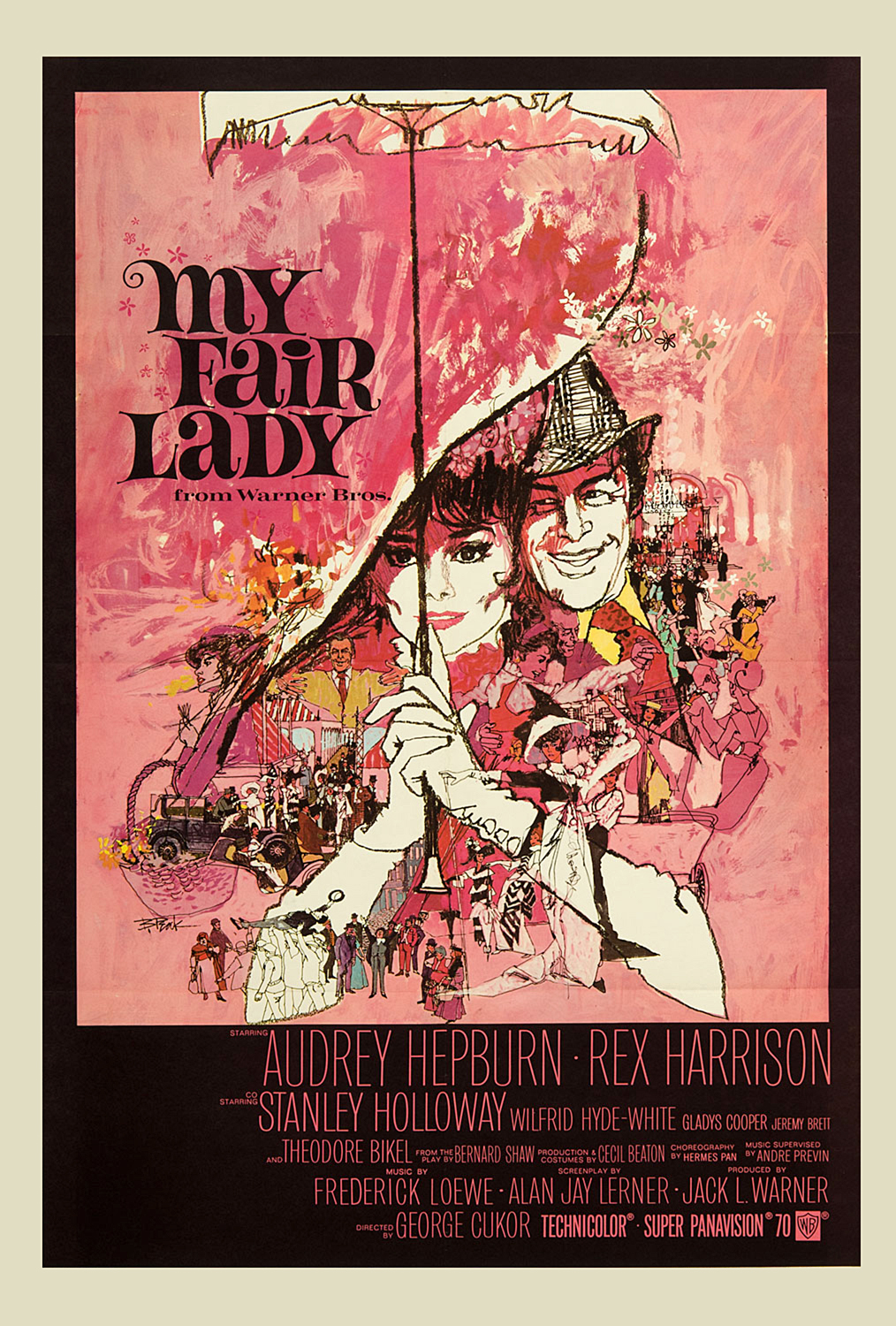
- Golden Globe Awards
1965 – Musical or Comedy: My Fair Lady
1964 was the year of My Fair Lady – who was the fairest of them all – winning best picture nods from both the Academy and the New York film critics, in addition to the Golden Globes.George Bernard Shaw’s masterful Pygmalion served as the inspiration for the timeless musical, but Alan Jay Lerner’s lyrics for the show matched the playwright’s unchallenged genius. Jack L. Warner, who had once earned the enmity of the film community when he claimed the Oscar for Casablanca upstaging its bona fide producer Hal B. Wallis, paid a fortune for the film rights. And as a producer, he accepted all the awards the movie won, including the Golden Globe.No expense was spared in the production. George Cukor was signed to direct, Rex Harrison to play Professor Henry Higgins and Audrey Hepburn, Eliza Doolittle. The latter casting was not a popular choice especially since the original Broadway Eliza, Julie Andrews, had just made a stunning debut earlier in the year as Mary Poppins. Audrey could barely sing (once again Marni Nixon dubbed the voice) but to paraphrase Billy Wilder, she sold more tickets at the box office.The two actresses never went public with their disagreements until Julie broke her silence while accepting her Golden Globe by saying “Finally my thanks to the man who made this all possible, Jack L. Warner.”No matter, the film was perfection and won Golden Globes for both Cukor and Harrison. Among the artistic triumphs were Harry Stradling’s color photography and Cecil Beaton’s costume design and art direction. Hepburn actually sang one song in the movie (“Show Me”) and Harrison almost had a showdown with Jack Warner over pre-recording his musical numbers, which was standard practice for all movies. Explaining that he had never talked his way through the songs the same way twice and thus could not convincingly lip-sync to a playback during filming, he held ground. Thanks to the use of a wireless microphone, which had never been used before, the sound department came through and earned themselves an Academy Award in the process.William Paley, who was then the head of CBS, put up the money for the original Broadway production in exchange for the rights to the cast album (through Columbia Records). When Warner bought the film rights it was with the proviso that the film rights would revert back to CBS after twelve years. His half a million-dollar investment has realized a profit of over twenty million dollars and counting.

